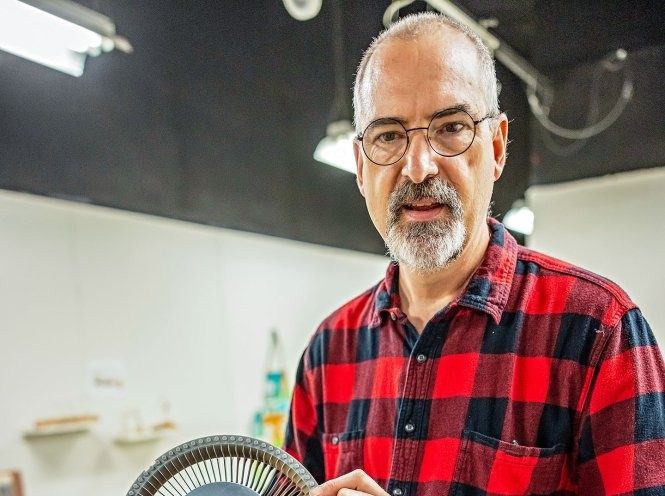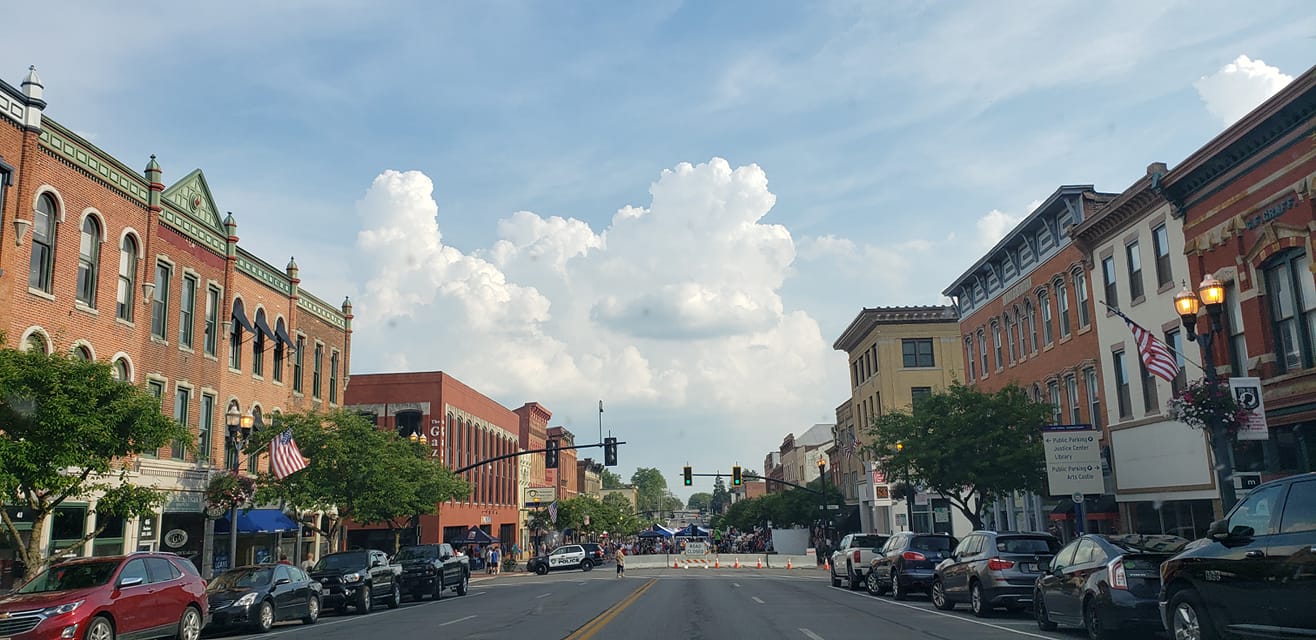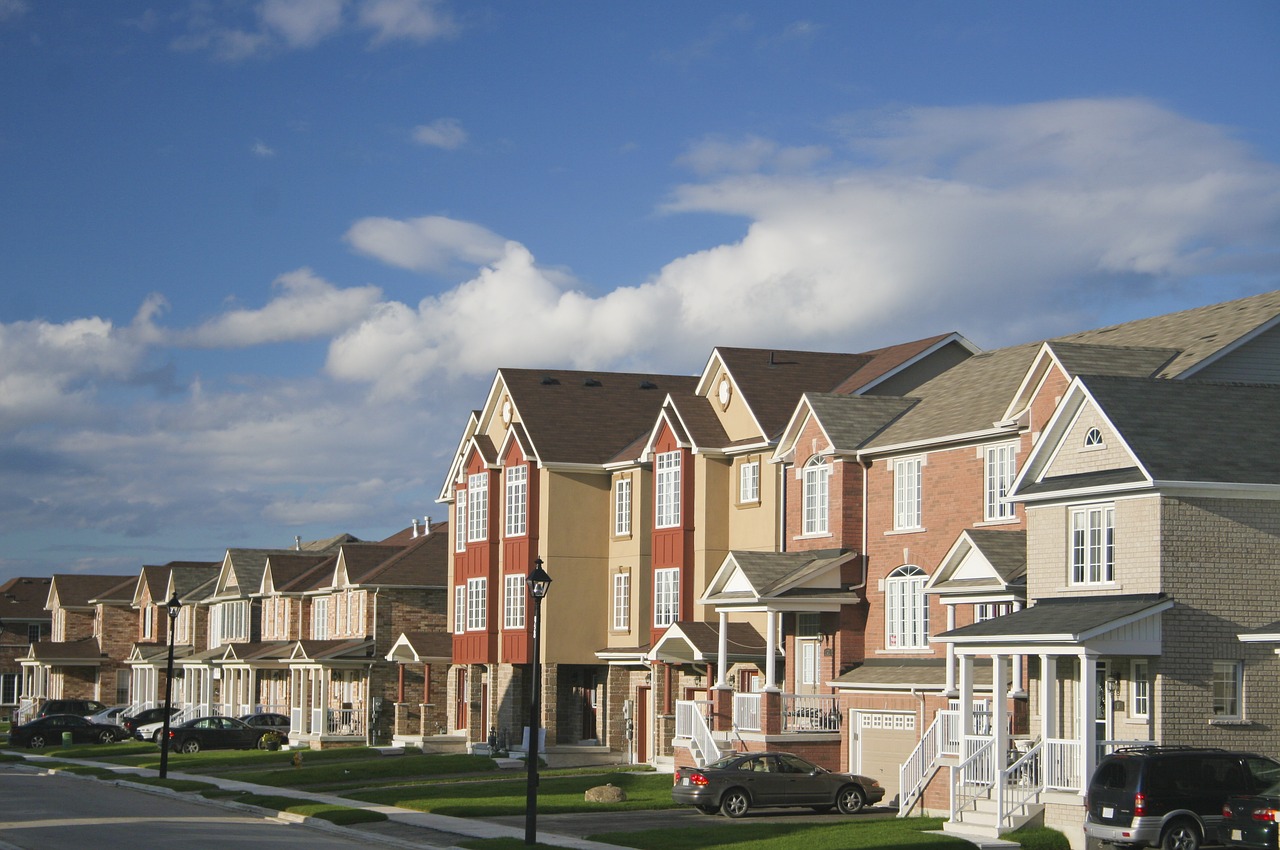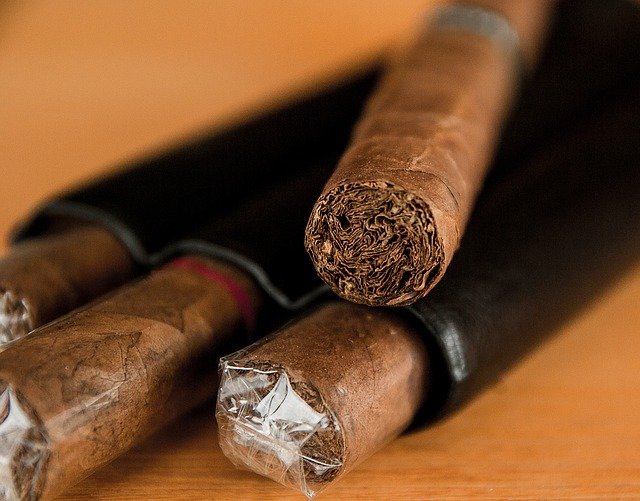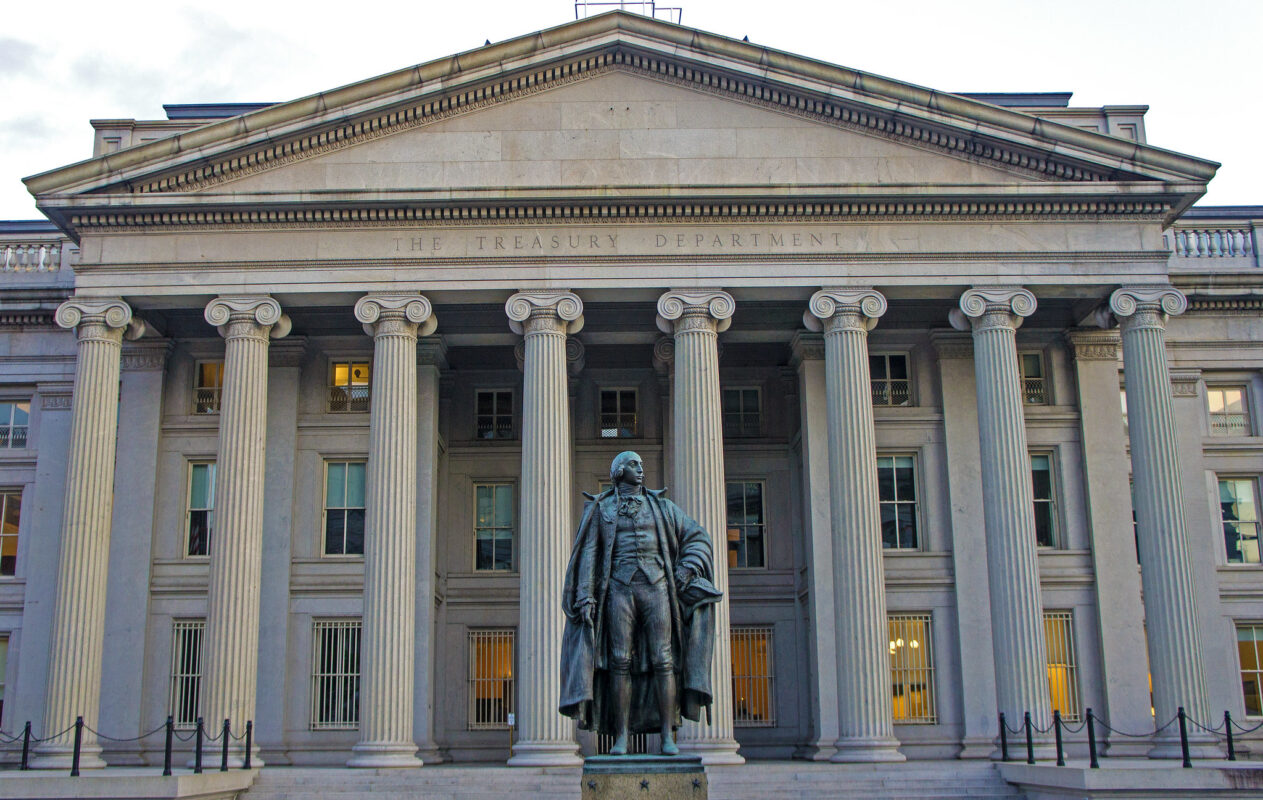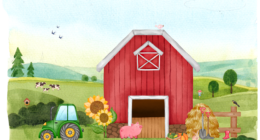Special to 1808Delaware
Local environmentalists and artists are improving the Delaware community through the Upcycling Center at Ohio Wesleyan University.
Located inside Haycock Hall, 31 Hayes St., the Upcycling Center at OWU accepts donations of items intended to inspire artists to create one-of-a-kind works of art.
“Materials are free for people to take and reuse,” said David Soliday, who first imagined the center in 2018.
“The vision of the center is to educate and promote a creative circular economy, where objects and materials are reused and repurposed to keep them in circulation,” said Soliday, an Ohio Wesleyan Information Services employee and a long-time board member of the Sustainable Delaware Ohio environmental awareness organization.
“It’s a charming change of perspective,” Soliday said, “thinking outside the box – like, ‘what else can we do with this box?’ – that can lead to practical and appealing art.”
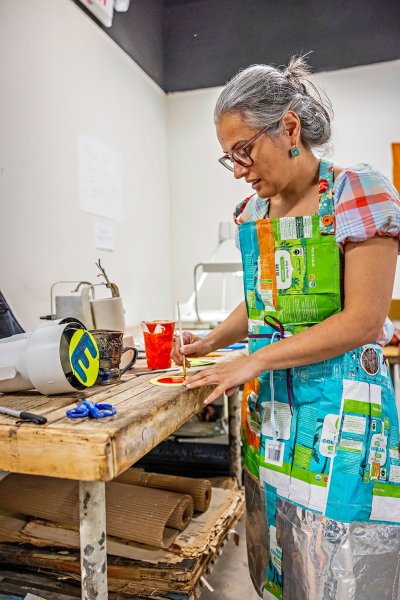
When space became available in 2023 in Haycock Hall, Ohio Wesleyan’s 3D arts building, Soliday began working in earnest with the OWU Department of Fine Arts and Sustainable Delaware to sketch out and set up the Upcycling Center. He was especially inspired by SCRAP Creative Reuse in Portland, Oregon, and the Pittsburgh Center for Creative Reuse in Pennsylvania.
Once word got out about the local initiative, contributions began to roll in – reaching 948 pounds of materials donated last year and another ton so far this year.
While all donated items are available for free, Soliday said, “the things we’ve made, like the keyboard key earrings and slide carousel mirror, are for sale.” These objects, and others, “teach folks how to creatively reuse things.”
Kristina Bogdanov, chair of the OWU Department of Fine Arts, said the decision to participate in the Creativity Center was a natural one.
“The Fine Arts program at OWU has always embraced interdisciplinarity and collaboration,” said Bogdanov, who joined the Ohio Wesleyan faculty in 2007. “One of the most important ways that art and sciences intersect is through creativity. At this moment in time, environmental science is at the forefront, and it is essential for the arts to have an impactful role relevant to the care of the environment, mass consumption, and design. Recycling and reappropriating are valuable practices that bring creativity, problem-solving, and visual thinking into action. As a department, we are excited to support the Upcycling Center and its mission.
“This collaboration is also an important link with the local community, and connecting with art teachers and art enthusiasts,” Bogdanov said. “Also, I am very pleased to say that David Soliday has been very receptive to my suggestions to recycle and reuse donated materials in a way that does not involve using harmful materials, such as heavy epoxy glues, for example. Most of the things are designed and assembled using screws, dowel joints, different folding techniques, wire loops/hooks, etc.”
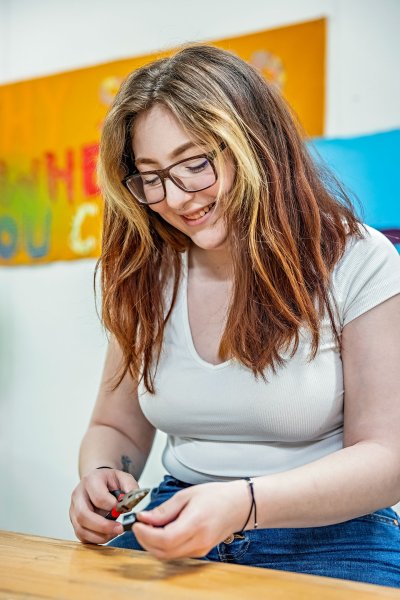
For those interested in donating items to the Upcycling Center, its webpage (owu.edu/upcycling) spells out in detail what is accepted. In general, the center accepts:
- Paper items (including magazines and cardboard tubes)
- Fabrics, fibers, and sewing notions
- Artist’s media and tools (including paints, pastels, and canvas)
- Craft supplies
- Mat board, framing, and sign-making supplies
- DIY home-improvement supplies
- School and office supplies
- Reusable media and technology (including CDs, floppy disks, and vinyl records)
- Jewelry and jewelry-making items
- Floral-making supplies
- Party and seasonal items
- Metal, wood, and plastic pieces suitable for craft projects
- Clean containers and organizing bins
Through July, the Upcycling Center’s summer hours will be 2-6 p.m. Mondays, 9 a.m. – noon Tuesdays, and 5-7 p.m. Wednesdays (closing early June 18 and closed June 19 for Juneteenth).
For more information about the center, visit owu.edu/upcycling, email upcycling@owu.edu, or call 740-368-3609.
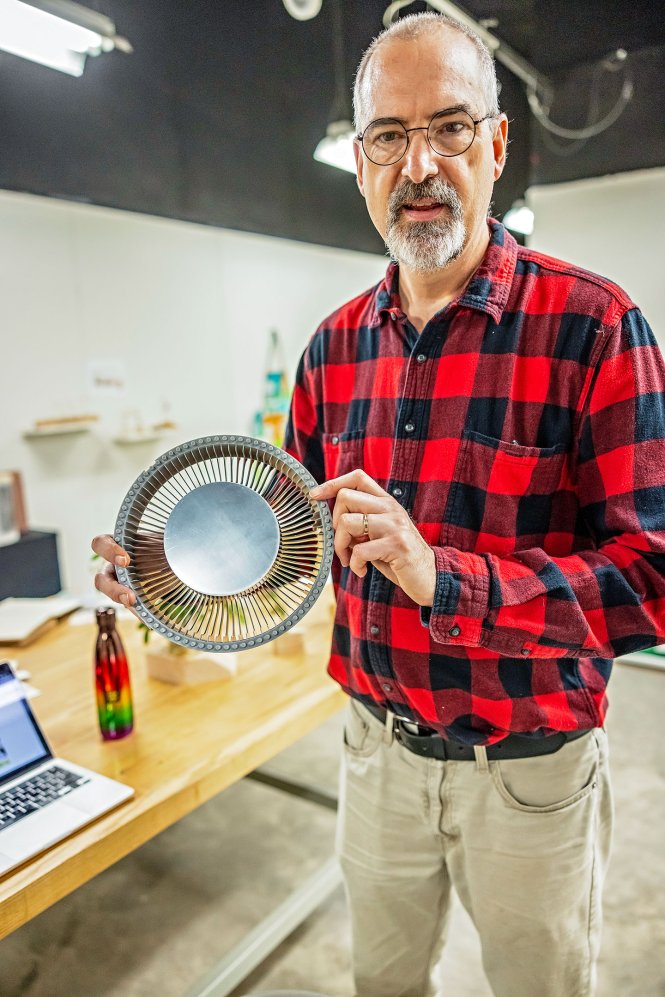
Photo: David Soliday shows off an item donated to the Upcycling Center at Ohio Wesleyan University. To date, nearly 3,000 pounds of reusable materials have been donated to the center. (Photos by James DeCamp)
Source: OWU
